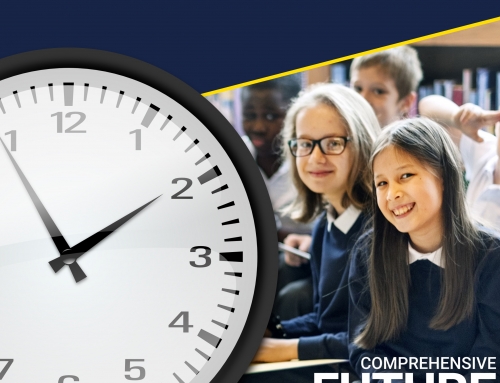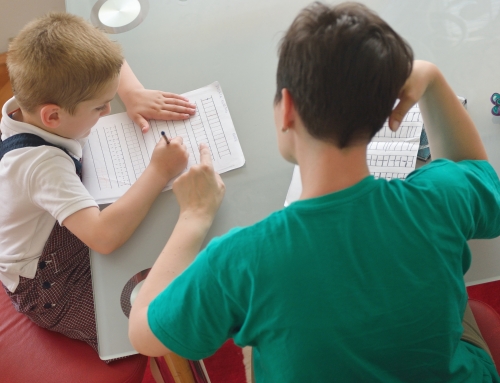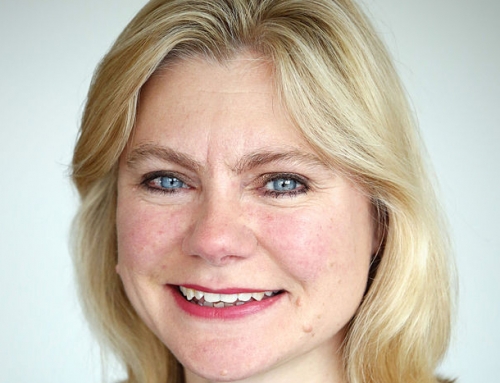March 29 2007
- Comprehensive Future is the campaign for fair school admission policies in England. The campaign is non party political and open to all. By lobbying Government, providing evidence, informing the media and supporting local campaigns on admissions we aim to bring about a comprehensive secondary school system in England with fair admissions criteria to all publicly funded schools, guaranteeing an equal chance to all children and an end to selection by ability and aptitude. Our individual supporters include school staff and governors, parents, members of both Houses of Parliament, local councillors, academics and other public figures who share a commitment to equality of opportunity within our education system. We also have support from organisations such as union branches and local political parties.
- We can provide more information on our aims and current regulations on admissions and ending selection if required.
- We welcome the opportunity to submit evidence to the primary review and hope that the review will consider the impact on English primary children of entry testing for secondary schools.
Many English primary children face selective entry tests
- In England selection at 11 remains an important influence on secondary education and primary school children and therefore on primary schools. When selection is part of the education system far more pupils are affected than just those who pass the test, as many more are rejected. Inevitably these children will label themselves failures when only half way through their education. Similarly selecting 10% of places on aptitude may seem minimal, but far more than 10% will be rejected.
- Throughout the debate on the recent Education and Inspections Act the Government repeatedly made promises of ‘no return to the 11plus’. In fact thousands of English children and their parents, unlike their Scottish, Welsh and soon Northern Irish counterparts continue to face entry tests for secondary education and the reduction in parental choice, de-motivation of children and social segregation that selection brings. Parliamentary answers indicate that data on the number of children sitting entry tests is not collected. Anecdotal evidence indicates that many children sit tests, often for several schools.
- Out of 150 local authorities in England 36 have one or more fully selective schools. The influence of selection extends beyond these areas as many schools select from a wide area. Children travel many miles to take entry tests, and if they pass them then travel these miles each day to attend the schools.
- 15 English Local Authorities (out of 150 ie 10%) have fully selective systems where places in selective schools are around 20% of the places – Bexley, Bournemouth, Buckinghamshire, Kent, Kingston, Lincolnshire, Medway, Poole, Reading, Slough, Southend, Sutton, Torbay, Trafford and Wirral.
- Another 21 have one or more selective schools – Barnet, Birmingham, Bromley, Calderdale, Cumbria, Devon, Enfield, Essex, Gloucestershire, Kirklees, Lancashire, Liverpool, North Yorkshire, Plymouth, Redbridge, Stoke on Trent, Walsall, Warwickshire, Wiltshire, Wolverhampton, The Wrekin.
- As well as fully selective schools some schools designated as comprehensive select partially on ability. These are schools which were selecting before 1997. A parliamentary answer (8 Feb 2006) indicated that 35 schools select partially on ability but these are only the ones known to the Government. The answer showed of the 17 local authorities where there are schools selecting from 10 to 33 % on ability 10 are local authorities which also have fully selective schools, so here partial selection adds to the burden of entrance testing which many children will be facing in these areas.
- Furthermore all secondary schools are allowed to select on aptitude, setting entry tests for admission. This burden of testing may increase as more schools become admission authorities. As research on London schools has shown schools that are admission authorities are more likely to select. It found more voluntary aided and foundation schools (13% and 12% respectively) were selecting on ability or aptitude in a particular subject areas than community schools (3%). (Secondary School Admissions in London. Hazel Pennell, Anne West and Audrey Hind. Centre for Educational Research, Dept of Social Policy LSE. February 2006)
The effect of selection on children
- The case for dividing children at 11 was shown to be flawed when selection ended for most communities in England, this remains the case now. Why should children be divided by a test on or before 11 years of age and furthermore, because of the outcome of that test have to be educated in different institutions?
- IQ testing is known to be unreliable and related to past experience rather than future potential. Research on the transfer test in Northern Ireland found it to be neither reliable nor fair (Testing the Test, Gardner and Cowan Queens University Belfast 2000). Selection takes no account of the fact that children develop at different rates. It assumes that ability is fixed at 10+. Much brain research shows that development occurs in spurts and is subject to many influences. The basis of testing is inevitably unfair. Children whose parents can afford coaching are more likely to pass the test. So poor children are unfairly affected.
- Far too little attention has been paid to the effect of selection on children. There is no good reason why English children, already some of the most tested in the world during their time at school, should face divisive entry tests for secondary school entry. The 11 plus adds another stress to children already facing SATs.
- A review body carried out an extensive study of the effect of the 11 plus in Northern Ireland. This involved a detailed consideration of its effect on primary children. It concluded– We were particularly impressed by the views of young people about their experiences of the Tests and their effects on themselves and others. We have been left in no doubt that the Tests are socially divisive, damage self-esteem, place unreasonable pressures on pupils, primary teachers and parents, disrupt teaching and learning at an important stage in the primary curriculum and reinforce inequality of opportunity. The report went on to say – the selection (and separation) of pupils on a narrow academic basis, at such an early stage in their education career, is both inappropriate and unsustainable. In reaching this view, we have had regard also to the implications of the European Convention on Human Rights. (Education for the 21st Century. Report of Post Primary Review Body Department of Education, Northern Ireland 2001)
- The London Children’s Rights Commissioner conducted research into the views of children on school admissions in 4 London primary schools. They identified the bad effect on children when local secondary schools selected in various ways- The pupils’ experience of this is entirely negative – more selection processes, more rejections, more anxiety and a divisive force within the classroom (Changing Schools. the impact of the school admission process on children. Hood and Templeton. Office of the Childrens’s Rights Commissioner for London 2002)
- Save the Children investigated the effect of taking the entry tests for secondary education on children in Northern Ireland. Its report concluded The views and experiences of the children spoken to in the course of our research suggests that testing has a far more detrimental effect on children than government is often willing to admit. The level of fear and anxiety that children admitted to was frightening.. (Children’s Voices in Education. Save the Children. November 2001)
- Even children not taking the test can be affected. Selection can force primary schools to concentrate on getting some of their children through the 11 plus rather than aiming for the best for all the children. As Tim Brighouse wrote in 1997 Secondary grammar schools I realize beget primary crammer schools. (Tim Brighouse Affirming the Comprehensive Ideal. . Pring and Walford. Falmer 1997)
- Recent evidence given to Comprehensive Future from headteachers of all ability schools in selective areas, drawing on their dealings with young people who were not ‘selected’ indicates the damaging effect of selection. As one head said to us about selection and what we put children through -‘ in any other area we would be guilty of child abuse’. Another head described the research done on the intake into her school, which illustrated the damaging effect of failing the 11plus. Although in fact the cohort was above average ability it scored lower than expected on perceived learning capacity, attitude to teachers, work ethic and confidence in learning.
- Selection divides families and children from their friends and results in huge social divisions in secondary education and thereby in communities. This is bound to affect the likelihood of children considering themselves to be equally valued members of society.



